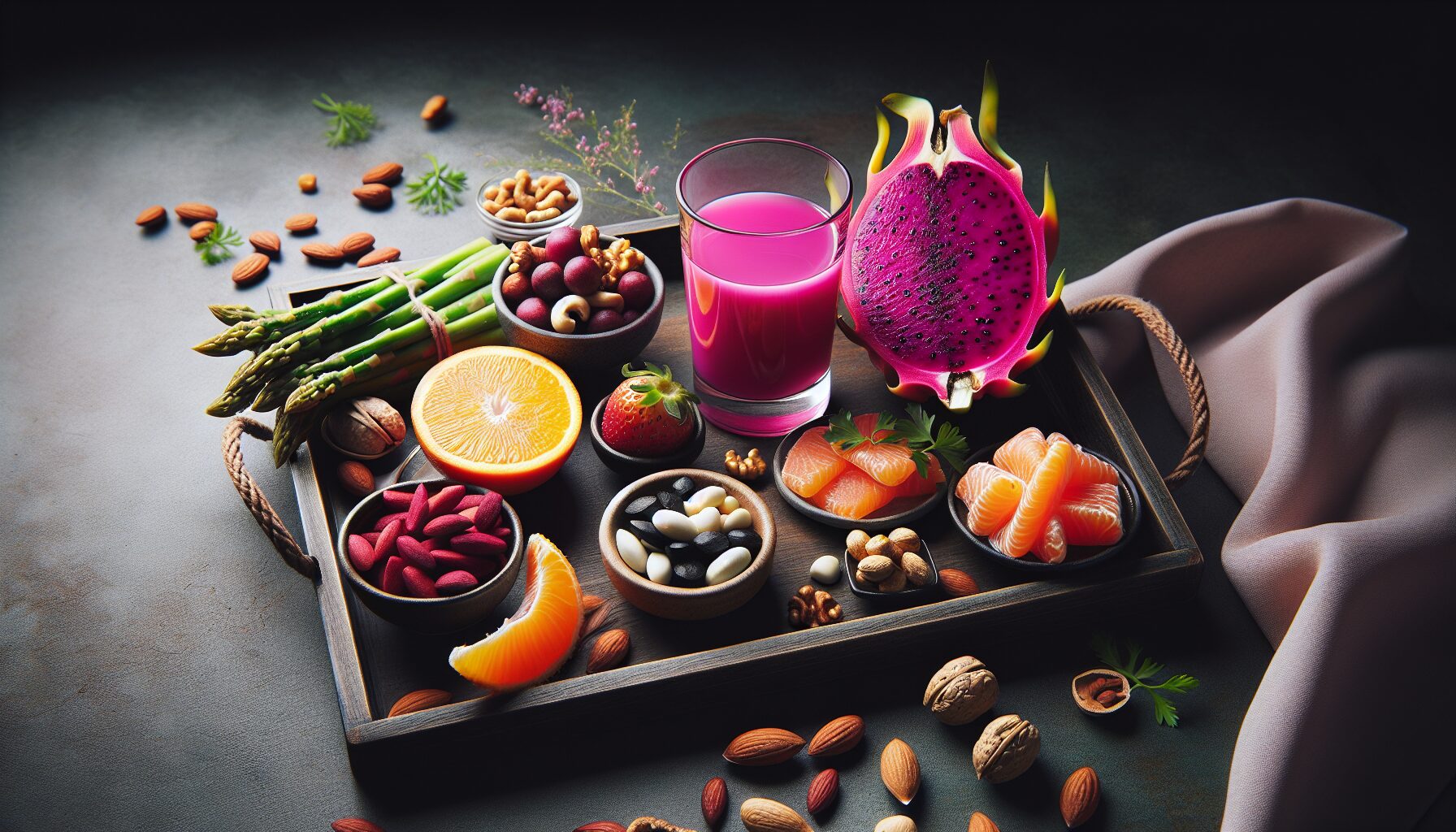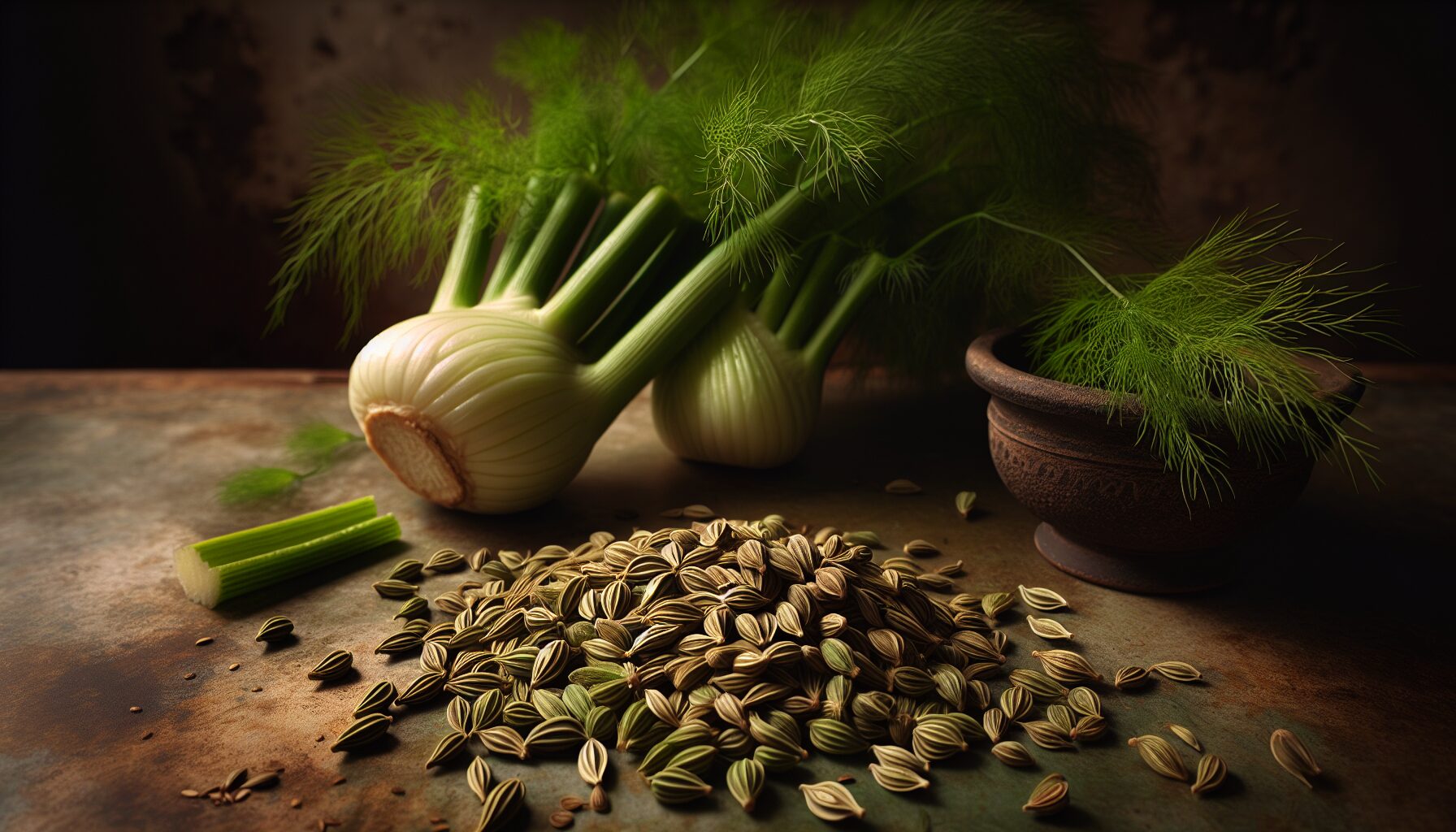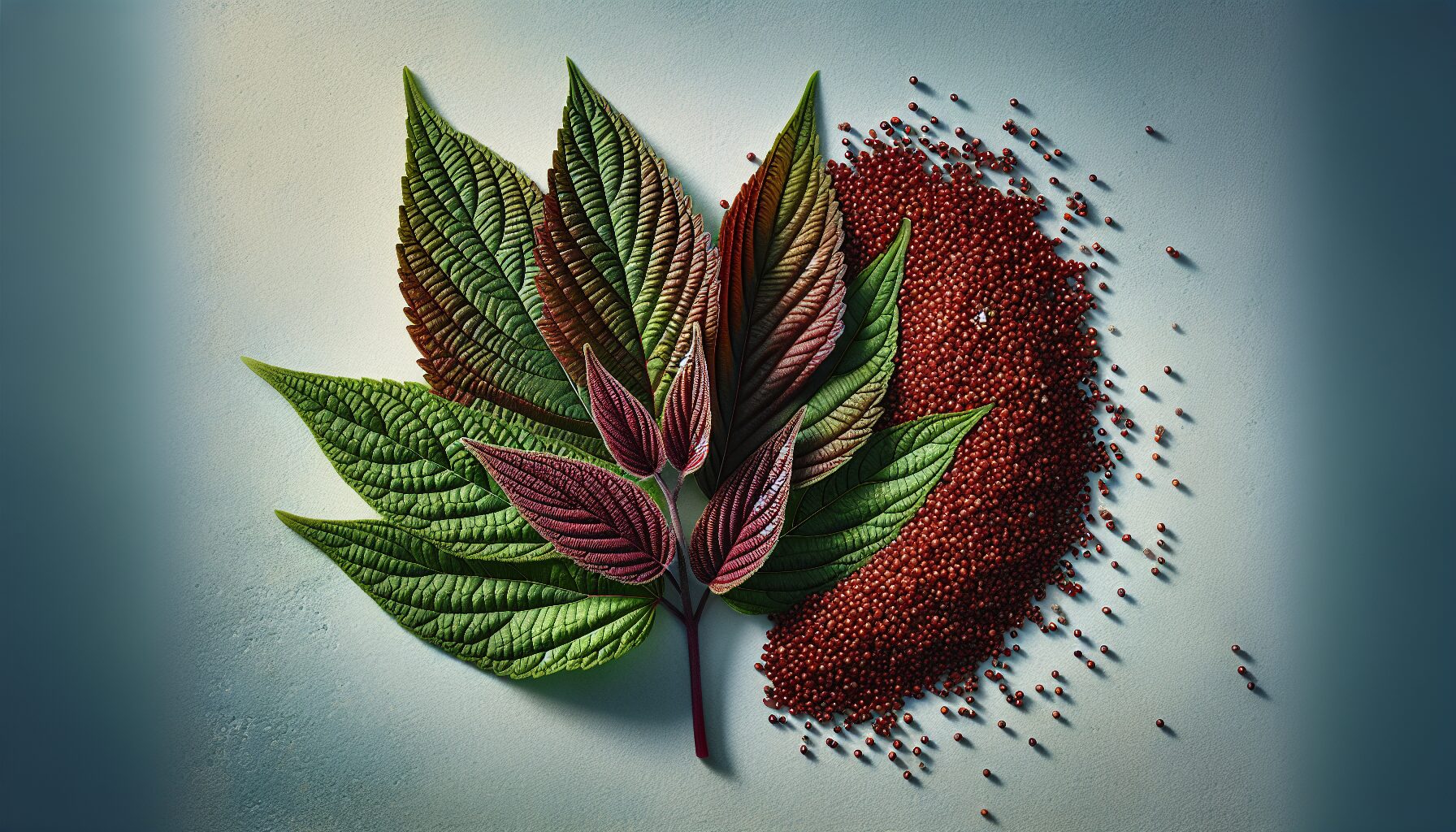
Djulis Leaf or Red Quinoa Antioxidants And Skin Health
Djulis is a traditional cereal from Taiwan with potential applications in the cosmeceuticals industry, especially for skin products, which is due to the rich antioxidant contents of djulis leaves. This cereal is still readily consumed by the indigenous people of Taiwan today and is also called red goosefoot.
Antioxidants are very important for skin health because of regular exposure of the skin to external environmental stressors. These external stressors can cause damage to the skin and promote skin ageing.
An example of an external skin stressor is UV radiation from the sun. While the sun encourages healthy vitamin D levels in the body, overexposure to sun UV radiation does have health implications. Some of these include sunburns or skin weathering that cause oxidative damage in the skin. Again, overexposure to external stressors that negatively influence the skin can cause cancers through DNA damage.
These are some of the reasons why the skin needs adequate antioxidants. A higher concentration of skin antioxidants encourages healthy skin ageing. In some cases, higher antioxidant status can promote a reversal of skin ageing. This is seen with the application of some cosmeceutical skin products where the effects include improved skin youthfulness and appearance.
Various studies on djulis extracts present djulis, also known as red quinoa, as a new and exciting plant with a high potential for use in the natural wellness and alternative medicines sector. However red quinoa, or djulis, is in the infancy of research on its antioxidant capacity and red quinoa could have various potential health benefits.
This is why djulis has been the subject of some interesting studies on its topical effects on the skin. Let’s cover some of the potential health benefits of red quinoa or djulis extracts in more detail, with a particular reference to skin health.
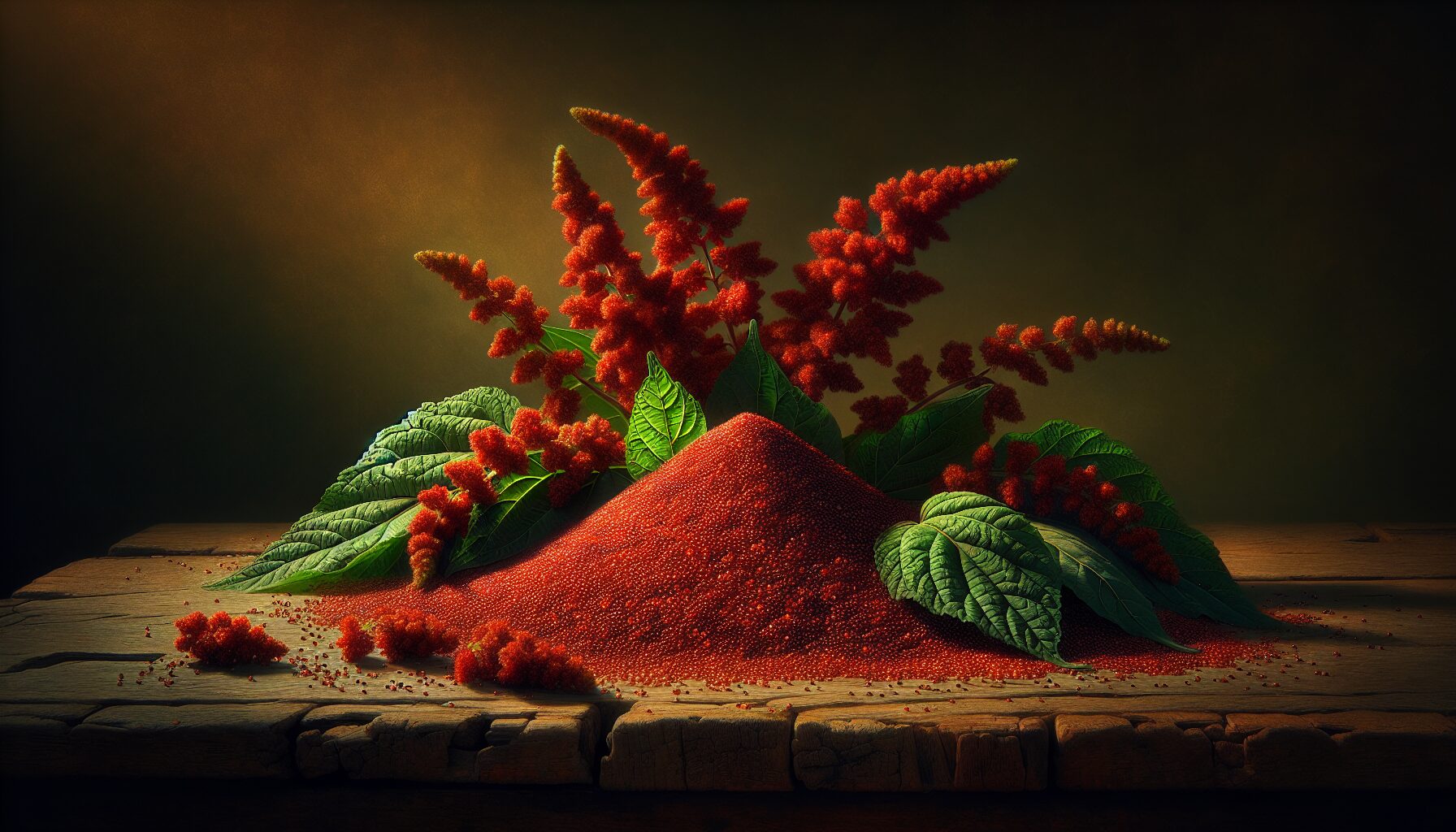
Health Benefits Of Red Quinoa Or Djulis Leaf Extracts To The Skin
As we’ve mentioned, early indications suggest that red quinoa extracts or djulis could have a cosmeceutical use in external or topical skin products. The leaves of djulis are of particular interest as a source of antioxidants.
One new and recent study analysed djulis leaves for their potential usefulness in skin cosmetic products. The leaf extracts of djulis were confirmed to be rich in antioxidants that could have potential health benefits. Djulis leaf extracts were found to be rich in phenolics, djulis flavonoids, betaxanthin and betacyanin. Leaf extracts of red quinoa contain high quantities of gallic acid, a well-known phenolic compound, as well as quercetin a well-known plant polyphenolic flavonoid.
The phenolics and vitamins within djulis plants are thought to be the main source of their antioxidant capacity. Phenolics are well known free radical neutralising molecules that prevent oxidation. Flavonoids, such as quercetin, are also impressive anti-inflammatory molecules.
Also found within djulis leaves, betaxanthin and betacyanin may also have sun light protective effects in the body. Detected in high amounts in djulis, these phytochemical compounds may be strong antioxidants with applications in the cosmeceutical industry. Overall, the antioxidant capacity of djulis leaves is comparable to green tea leaves.
Applying djulis leaf extracts to the skin improved the visual appearance of skin wrinkles and brightness, while also visibly hydrating the skin. Djulis leaf extract may improve skin elasticity and firmness. Skin oil secretion was also reduced and this could be of benefit for skin acne. It may reduce fatty oil droplet production. This suggests that there are potential health benefits of djulis leaf extracts for the skin.
The findings of this study with djulis leaves indicate that it is suitable for application in cosmeceutical products. Djulis extracts are rich in unique bioactive compounds that could form a part of natural skin products.
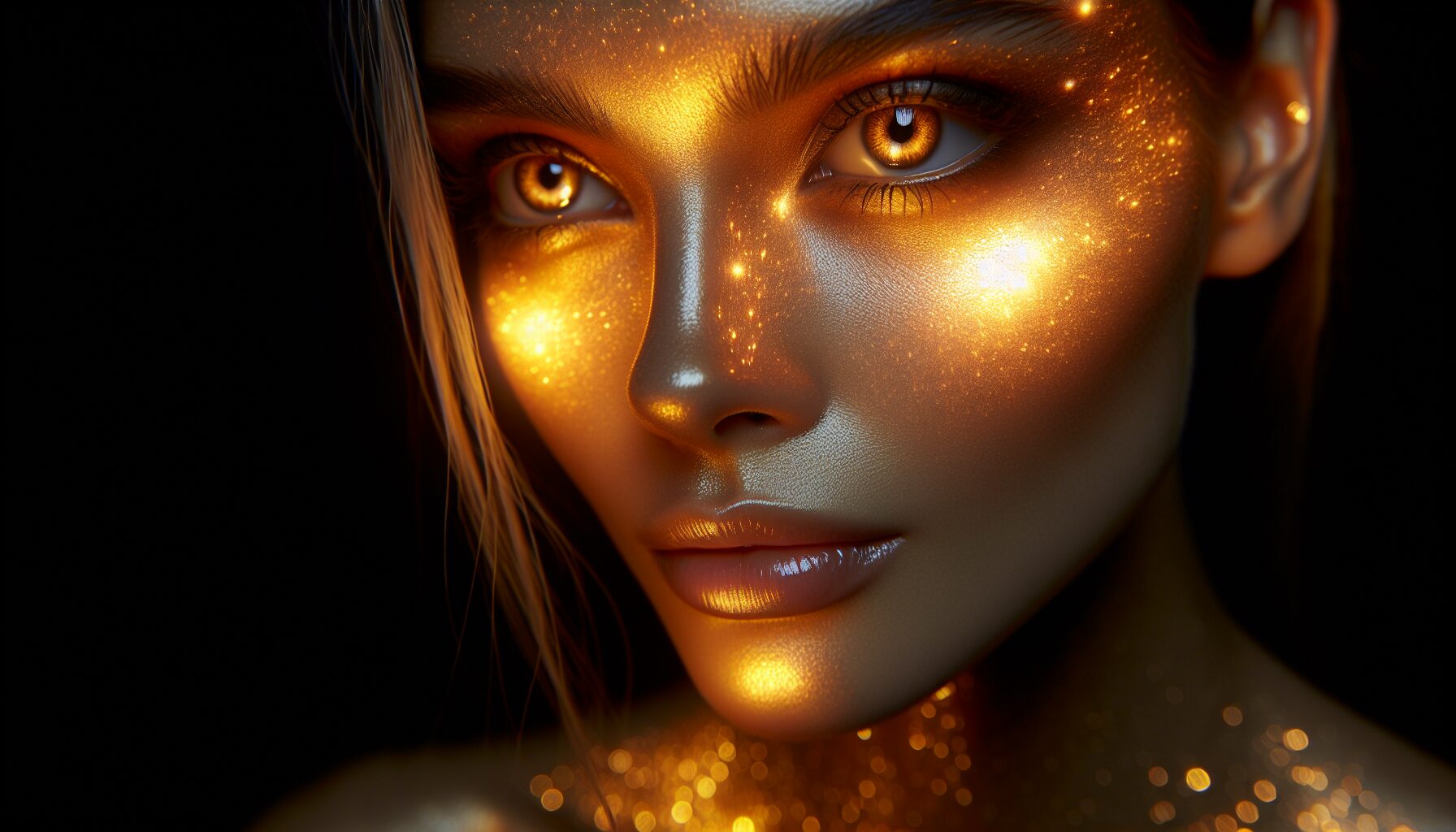
Other Studies On Health Benefits Of Red Quinoa Or Djulis Extracts
This new and unique study is an introduction into the cosmeceutical potential of djulis extracts. There have been previous studies looking into the effects of djulis extracts, including from the leaves, on the skin.
One study found that djulis extracts increased the ability of skin cells to repair themselves. This is quite an interesting finding, while genes responsible for antioxidants and the skin barrier were increased. Topical applications might also lessen the physical effects of UVB on the skin. This suggests that red quinoa has an ability to help the skin to repair itself, therefore it could be used as an active ingredient in cosmeceutical skin products.
In addition, djulis extracts seem to improve the expression of collagen producing genes and the production of collagen. Levels of type I collagen were much higher in skin cells. Other studies have found that djulis improves antioxidant levels within cells. This protection of antioxidants, like vitamin C, may be why this improvement in collagen production is seen. Higher levels of Vitamin C may cause the improvement in the production of collagen.
Collagen is important for skin health and is a major contributing factor to skin youthfulness. Boosting skin collagen may improve the appearance of the skin. A combined human trial with collagen and djulis found that this combination improved skin moisture, elasticity and smoothness, promoting skin antiaging qualities. This finding should also improve interest in the use of djulis leaves in skin cosmeceutical products.

Red Quinoa Grain Health Benefits
Interestingly the red quinoa grain, not just the djulis leaf extract, also presents itself with possible antioxidant health benefits to the skin. Djulis grain antioxidants are considered to be similar in strength to vitamin C against some radicals.
Betanin is one antioxidants identified within djulis grains. Betanin is specific to red quinoa and may have some potential applications within the wellness industry.
There are many other bioactive compounds within red quinoa grains that have been explored for their potential health benefits. These include ferulic acids, flavonoids and catechins. There is a lot of evidence to suggest they offer cells additional and alternative antioxidant protection to key vitamins, such as vitamin C.
UVB radiation from the sun is a cause of skin photodamage. It can penetrate the layers of the skin and negatively affect skin cells. This is how the sun triggers oxidative and inflammatory damage in the skin cells. It is a leading cause of skin ageing too. Excessive oxidative damage and stress to the body causes diseases, not just skin inflammation and cancer.
When djulis was consumed, djulis extracts provided protection from highly damaging UVB radiation. The core bioactive compounds of red quinoa thought to protect the skin include rutin and chlorogenic acid. These compounds rutin and chlorogenic acid, within red quinoa, improved skin cell lifespans and reduced inflammation markers in skin cells after intense sun exposure. One issue with skin care products is ensuring that the product doesn’t cause mild skin damage. Interestingly, not only do red quinoa grain extracts prevent oxidative stress, they prevent excessive cell death and promote healthy cell lifecycles.
This study introduces the concept of functional foods as a means of protecting the skin from sun damage. It is not just the application of skin creams that can protect your body from sun damage.
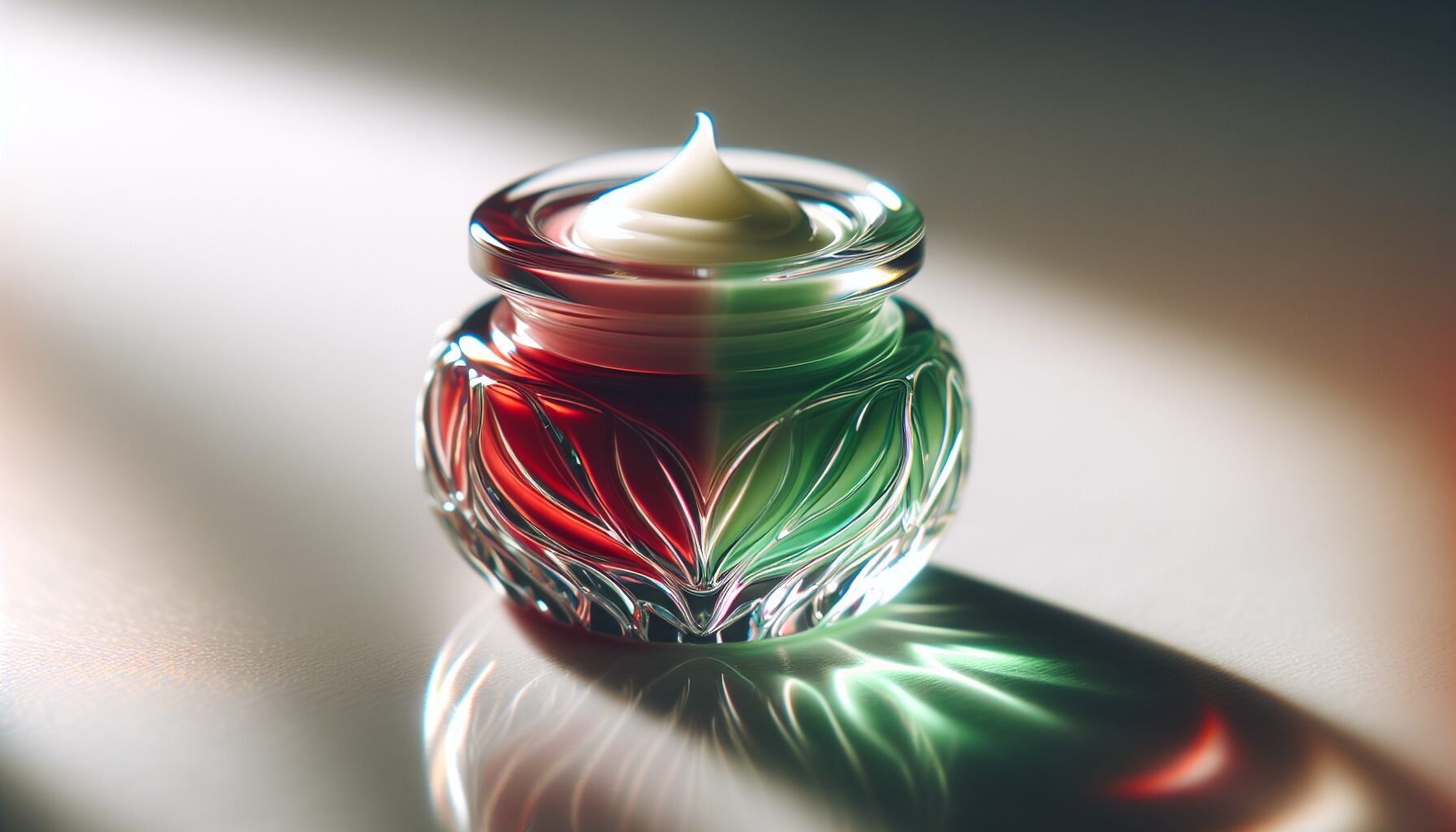
Summary
Djulis, or red quinoa, has potential health benefits. Extracts of djulis leaves and also djulis grains are abundant in antioxidants. Assays show the antioxidants in djulis might be similar in ability to vitamin C.
Because of how much external pressure and stress the skin can come under, antioxidants encourage optimal skin health. Skin stressors, like excessive UVB radiation, promote skin ageing and can cause cancers or other diseases through oxidative stress.
In some cases, higher antioxidant concentrations encourage improved skin youthfulness and appearance. Djulis is the subject of some interesting studies on its topical effects on the skin because of its antioxidant contents.
Djulis leaf extracts are rich in phenolics, djulis flavonoids, betaxanthin and betacyanin. Also, applying djulis leaf extracts to the skin improved the visual appearance of skin wrinkles and brightness, visibly hydrating the skin. There are potential health benefits to applying djulis leaf extracts to the skin. Djulis extracts are rich in unique bioactive compounds that could form a part of natural skin products and are suitable for use in cosmeceutical products.
Other studies have shown that djulis extracts increase the ability of skin cells to repair themselves, while improving the production of collagen in skin cells. Collagen is really important for skin health and is a major contributing factor to skin youthfulness. Consuming djulis grains may also have sun damage protection benefits to your health.
Emerging research suggests that djulis leaf extracts could be a very suitable for use in natural cosmeceutical products, being rich in unique bioactive antioxidant compounds.
For more interesting articles, see the main articles page below.



